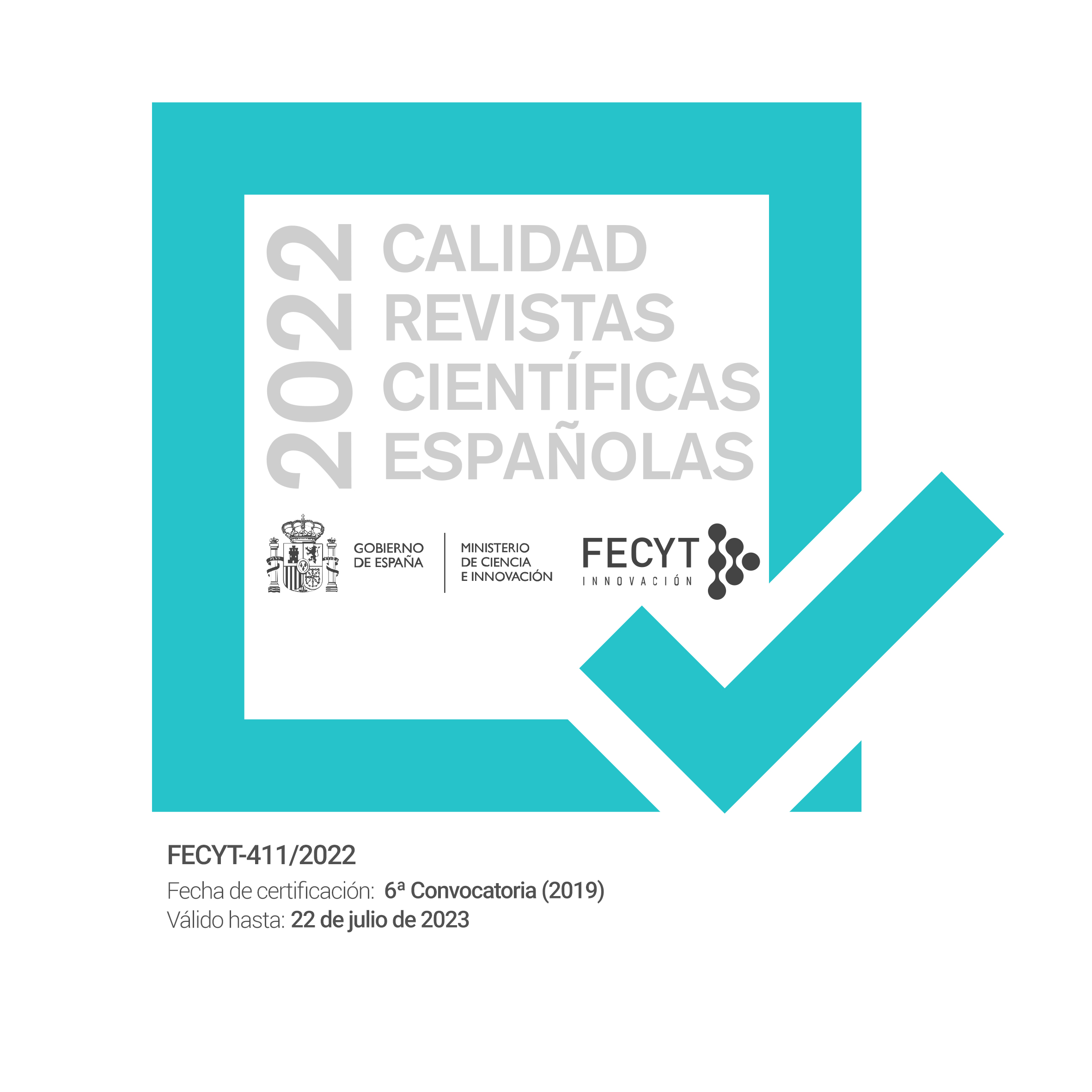Mujeres (nacionalistas) del frente: Espacio y género en la guerra civil española
DOI:
https://doi.org/10.53351/ruhm.v7i13.384Palabras clave:
fascismo español, Sección Femenina, nacionalización, guerra civil, FalangeResumen
Título: Mujeres (nacionalistas) del frente: Espacio y género en la guerra civil española
Title: Women (nationalists) from the front: Space and gender in the Spanish Civil War
[ES] Resumen: La Sección Femenina desempeñó un papel central a la hora de "nacionalizar" a las masas españolas. Esa organización desarrolló por primera vez, a lo largo de la Guerra Civil, un cuadro local y nacional de dirigentes; su número de afiliadas se disparó de 2.500 en 1936 a aproximadamente 600,000 a mediados de 1939; además, llegó a monopolizar (entre otras corporaciones) la rama femenina del sindicato español de estudiantes universitarios (SEU); los sindicatos de profesoras y enfermeras; la sección femenina del movimiento juvenil de la Falange y el Servicio social para mujeres. Durante la guerra, militantes de la SF tomaron sobre sí diversas tareas tanto en la retaguardia como en el frente. Algunas eran de carácter auxiliar tradicional (como la enfermería, la recolección de fondos, cocinar y cuidar la ropa de las tropas) y otras de una naturaleza menos convencional (por ejemplo, el espionaje o el contrabando de armas y escamoteo de hombres a la zona nacionalista).
El presente artículo examina la relación entre género y espacio dentro del contexto de la guerra civil española. Al analizar el discurso y las prácticas cotidianas de mujeres movilizadas por la SF del partido fascista español, estudia algunas de las prácticas espaciales y representaciones del espacio que conformaron la vida de las mujeres nacionalistas de dicho periodo. A mi modo de ver, el liderazgo de la SF, así como muchas de las mujeres movilizadas por la organización durante la Guerra Civil, tomaron parte activa en la forja de lo que algunos historiadores han llamado la cultura política del fascismo español.
Palabras clave: fascismo español, Sección Femenina, nacionalización, guerra civil, Falange.
[EN] Abstract: The Sección Femenina played a central role in "nationalizing" the Spanish masses. That organization developed for the first time, throughout the Civil War, a local and national cadre of leaders; its number of affiliates soared from 2,500 in 1936 to approximately 600,000 in mid-1939; in addition, it came to monopolize (among other corporations) the female branch of the Spanish union of university students (SEU); teachers 'and nurses' unions; the feminine section of the youth movement of the Falange and the social service for women. During the war, SF militants took on different tasks in the rear as well as in the front. Some were of a traditional auxiliary nature (such as nursing, fundraising, cooking and caring for the troops' clothes) and others of a less conventional nature (for example, espionage or arms smuggling and men sneaking into the nationalist area).
This article examines the relationship between gender and space within the context of the Spanish Civil War. When analyzing the discourse and the daily practices of women mobilized by the Sección Femenina of the Spanish fascist party, it studies some of the spatial practices and representations of space that made up the life of the nationalist women of that period. In my view, the leadership of the SF, as well as many of the women mobilized by the organization during the Civil War, took an active part in the forging of what some historians have called the political culture of Spanish fascism.
Keywords: Spanish fascism, Feminine Section, nationalization, civil war, Falange.
Descargas
Descargas
Publicado
Número
Sección
Licencia
Licencia Creative Commons Atribución-NoComercial-SinDerivar 4.0 Internacional
Esto es un resumen legible (y no un sustitutivo) de la licencia.
Usted es libre para:
Bajo los siguientes términos:
-
Atribución — Usted debe darle crédito a esta obra de manera adecuada, proporcionando un enlace a la licencia, e indicando si se han realizado cambios. Puede hacerlo en cualquier forma razonable, pero no de forma tal que sugiera que usted o su uso tienen el apoyo del licenciante.
-
NoComercial — Usted no puede hacer uso del material con fines comerciales.
-
Sin Derivar — Si usted mezcla, transforma o crea nuevo material a partir de esta obra, usted no podrá distribuir el material modificado.
No hay restricciones adicionales — Usted no puede aplicar términos legales ni medidas tecnológicas que restrinjan legalmente a otros hacer cualquier uso permitido por la licencia.








